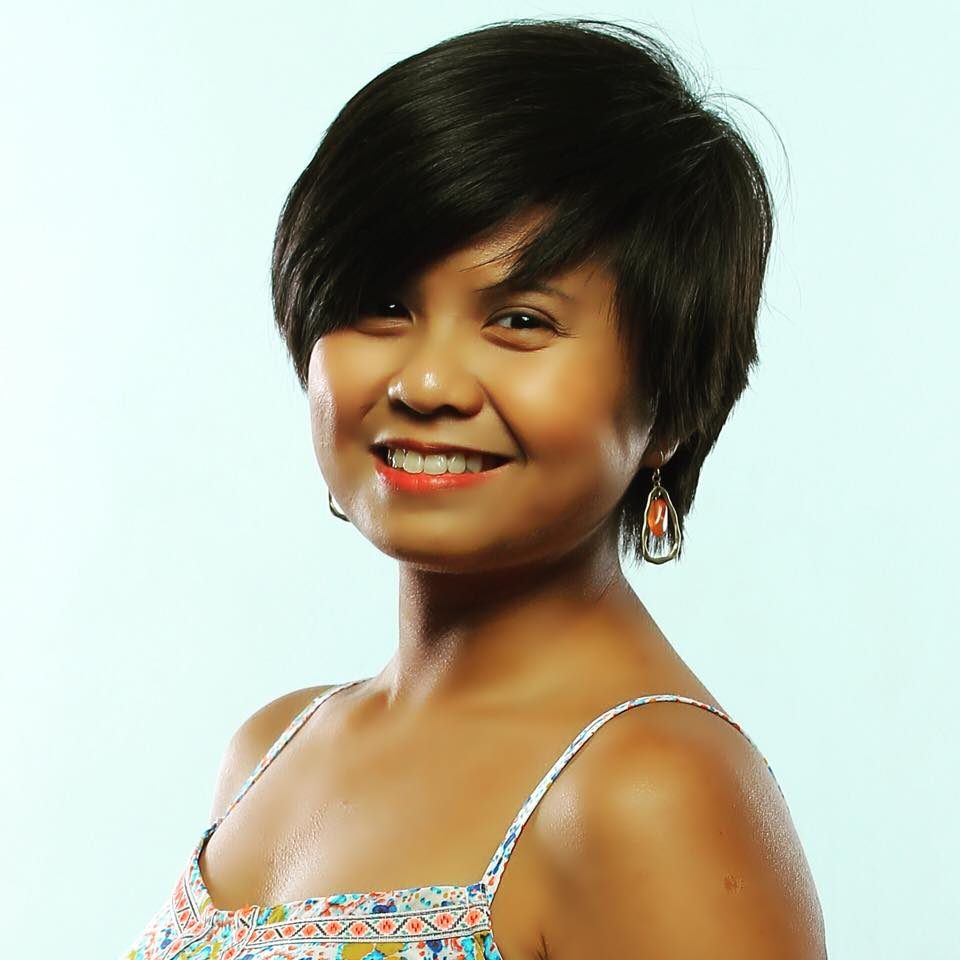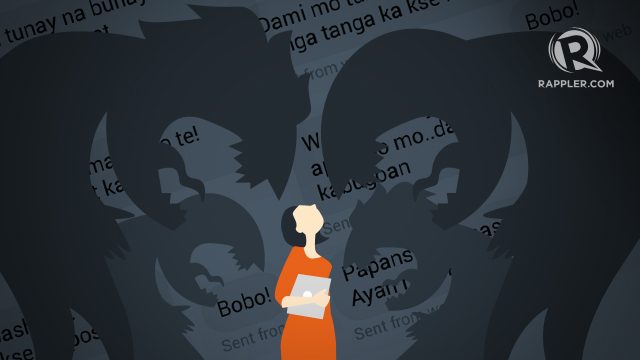SUMMARY
This is AI generated summarization, which may have errors. For context, always refer to the full article.

This is how they silence a woman: first they tell you to shut up — because you are a woman and have nothing important to say.
And if that doesn’t work, they call you names like pokpok (whore) and bitch, or call you out for the size of your breasts or the imperfections of your face — because you are nothing but your body.
They call you stupid, to remind you of your inferiority. And if still you relent, they threaten you with rape and then tell you it’s your fault, for speaking up, for causing drama, for seeking attention.
A brief background about me: I am an opinionated woman. I usually express my thoughts through writing. I have also been working in the development sector and thus, hold some things of high value — human rights, climate justice, freedom of expression, gender rights to name a few.
Because of these deeply held views, I have outspokenly campaigned against Rodrigo Duterte and the way he wants to govern the country; how he blatantly says he will kill people; how he goes on kissing sprees in his campaign sorties. (READ: Duterte: Kissing women on lips a ‘mistake’)
In return I have gotten thousands of comments and messages from his supporters, some of whom I have engaged in constructive discussions, but most have attacked me as a person and have used my womanhood against me. (READ: A leader of bullies)

‘One case too many’
A female friend who had the guts to reply to some of these comments have been called pokpok. She was also called out for the size of her breasts, saying her big breasts do not imply she also had big brains.
When this harassment was brought to a higher level of discourse, people tried to tone it down, saying it was an isolated case and that we should just let it pass. But violence is violence, and harassment is harassment. One case is one case too many.
Interestingly, another friend, who happens to be male, also posted against Duterte but was never told about how small or big his penis is, or was never called out for just causing drama or for seeking attention.
My point is this: we are in the 21st century, but we are still intimidated into silence when we speak out.
Blaming the victim
Last April 7, I posted an album of screenshots of messages I have received from these rabid supporters, hoping to make more people aware of what I have been going through for the past weeks.
These messages range from name-calling to grave threats. People have wished for me to be raped, and asked how much I cost for a one-night stand. (READ: ‘Sana ma-rape ka‘: Netizens bully anti-Duterte voter)
If these weren’t disconcerting enough, some people still manage to say it was my fault, that maybe I had provoked these people to wish me harm, that I should have just kept silent.
I cannot comprehend this logic — that by expressing my opinion, threats to my life are justified. We often see this attitude and behavior towards women.
When we get cat-called, when we get harassed, when we get raped, it is always our fault. It is because we acted in some way or said something that provoked others, and so it is okay for them to harm us.
Some say these threats are also just people freely expressing themselves. But let’s make this clear: opinion is different from threat and harassment. The latter is punishable by law.
In addition to all these, I have been blocked by Facebook for “violating community standards.” I was the victim of harassment and by speaking up against it, I get to be silenced by a social media platform that claims to support free speech.
But the question is why?
Bigger problem
What we are seeing now is only a symptom of a bigger problem for women: we still have a culture of patriarchy where women are seen as inferior to men, where we can’t express ourselves unless we are told to do so, where our bodies and our sexuality are still used against us.
While this is becoming more obvious this election season, this is not just an issue of elections, we have to address the bigger problem that still allows for gender-based violence, sexual harassment, victim blaming, and deliberate silencing of women to continue.
Moreover, what concerns me most is how people can just wish to inflict you harm and say it so casually. Maybe it’s time to ask ourselves what we have become as a society that we need to be reminded to go back to our humanity.
As of writing, I have filed a police report against those who have made threats against me. An investigation will ensue if I decide to bring this to court.
This is how they silence a woman and they try to silence me. But I am a woman not to be silenced. – Rappler.com
Renee Juliene Karunungan is the Advocacy Director of Dakila. Dakila has been campaigning for climate justice since 2009. She is also a climate tracker for Adopt A Negotiator.
Add a comment
How does this make you feel?
There are no comments yet. Add your comment to start the conversation.